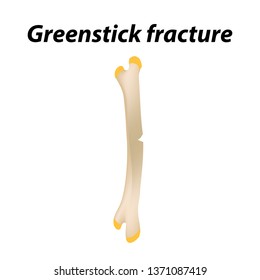Are Chiropractic Care Adjustments Compulsive? Separating Truth From Misconception
Are Chiropractic Care Adjustments Compulsive? Separating Truth From Misconception
Blog Article
Written By-Hoover Nygaard
You might have heard that chiropractic care adjustments can result in an addicting dependence, but that's an usual misunderstanding. Many clients discover alleviation without creating any kind of kind of dependency. pediatric chiropractor to recognize truth function of these adjustments and exactly how they suit your overall health and wellness method. So, just what does the science claim concerning chiropractic care and your health? Let's discover the facts.
Recognizing Chiropractic Adjustments and Their Objective
When you consider chiropractic care modifications, it's vital to recognize their purpose and exactly how they work. These modifications aim to correct misalignments in your spinal column and joints, advertising much better alignment and motion. By using regulated force to particular locations, chiropractics physician aid ease pain, boost feature, and boost your overall well-being.
Chiropractic treatment focuses on your body's capability to heal itself, highlighting the connection in between the spine and the nerve system. When your spine is straightened, it can minimize nerve interference, allowing your body to work optimally.
Routine modifications might additionally assist avoid future problems, maintaining you energetic and pain-free. Eventually, chiropractic care changes serve to support your health and wellness, boost mobility, and enhance your lifestyle.
Common Myths Concerning Dependency and Chiropractic Care
Lots of people hold false impressions regarding the partnership in between chiropractic treatment and dependency therapy. One typical misconception is that chiropractic adjustments create an addiction-like reliance. In reality, several patients discover relief from discomfort and discomfort, but this does not imply they develop a psychological or physical dependency.
An additional myth is that chiropractics physician are simply trying to maintain you returning for more changes. Many chiropractic specialists prioritize your wellness and go for long-lasting health instead of regular sees.
Additionally, how to deal with lower back pain think chiropractic treatment can change conventional dependency therapies, however it needs to match, not replace, evidence-based treatments. Comprehending these myths can assist you make informed choices about your wellness and wellness without dropping prey to false information.
The Science Behind Chiropractic Adjustments and Person Experience
While some may examine the efficacy of chiropractic changes, an expanding body of study supports their duty in easing discomfort and improving total feature.
Studies suggest that spine adjustment can decrease pain from problems like lower pain in the back, stress headaches, and neck discomfort. When you undertake chiropractic treatment, the modifications intend to restore appropriate positioning, improving your body's natural healing abilities.
Lots of patients report enhanced wheelchair and a better sense of wellness after treatment. Furthermore, the restorative partnership you develop with your chiropractic practitioner can improve your experience, as they give tailored treatment customized to your requirements.
This mix of clinical backing and favorable person experiences assists clear up why chiropractic adjustments work for many people looking for alleviation.
Final thought
In conclusion, chiropractic care modifications aren't addictive; they're developed to boost your wellness and promote aggressive health care. By unmasking the misconceptions bordering dependency, it's clear that these therapies can supply considerable alleviation without producing a cycle of dependency. Embracing chiropractic treatment as a complementary technique to traditional therapies can result in far better health outcomes. So, if you're thinking about modifications, rest assured that they have to do with improving your quality of life, not developing a dependence.
